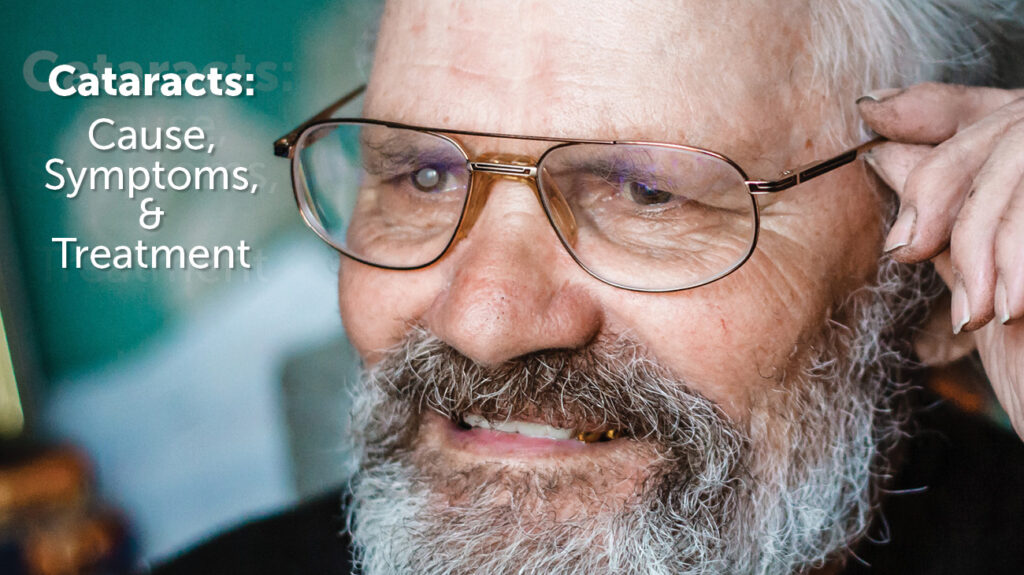Cataracts affect about 24 million Americans and are the leading cause of blindness in the world.* Cataracts are a natural part of aging but should be addressed as they start to affect your vision. If you are over the age of 40, we recommend scheduling a yearly comprehensive eye exam to detect cataracts as they develop. Want to learn more about the cause, symptoms, and treatment of cataracts? Read below!
What causes cataracts?
Cataracts are the clumping together of proteins within the lens of your eye, causing cloudiness in your vision. While health issues like diabetes, obesity, smoking, ultraviolet radiation, and family history can influence your development of cataracts, your eyes and body’s natural aging also leads to cataracts. As you age, cataracts may begin to develop and get larger or more severe over time naturally.
Symptoms
Symptoms vary from person to person. If you start to experience any of the following symptoms associated with cataracts, schedule an appointment with our office.
- Slight blur in vision
- Dim or cloudy vision
- Light sensitivity (sunlight or lamps seem too bright)
- Colors appear faded
- Reduced night vision quality
Types of cataracts
Subcapsular
Subcapsular cataracts, most commonly found in individuals with diabetes, typically occur in the back of the lens. Because of where it develops, you may notice symptoms of degraded night vision or difficulty reading first.
Nuclear
Nuclear cataracts are the most common and are associated with aging and occur in the central zone of the lens.
Cortical
Cortical cataracts are the opposite of Nuclear cataracts and begin in the outer part of the lens, interfering with light passage through the eye.
Are cataracts preventable?
Lower your risk of developing cataracts by maintaining your body and eye health.
- Schedule a yearly comprehensive eye exam!
- Stop smoking! Smoking can increase your risk of cataracts.
- Continuing treatment if you have diabetes or other medical conditions will help minimize your risk.
- Prevent ultraviolet radiation by wearing 100% UV blocking sunglasses.
Treating cataracts
If you are experiencing symptoms listed above or are concerned you may be developing cataracts, call our office to schedule an appointment. During your appointment, we will examine your eyes and provide the best recommendation to manage your cataracts or recommend surgery if needed. Cataract surgery involves removing the cloudy lens and replacing it with a clear lens to improve your vision.
Have more specific questions about cataracts, your risk, or treatment options? Call our office to schedule an appointment and let us know you would like to learn more about cataracts!
*National Eye Institute (https://nei.nih.gov)



